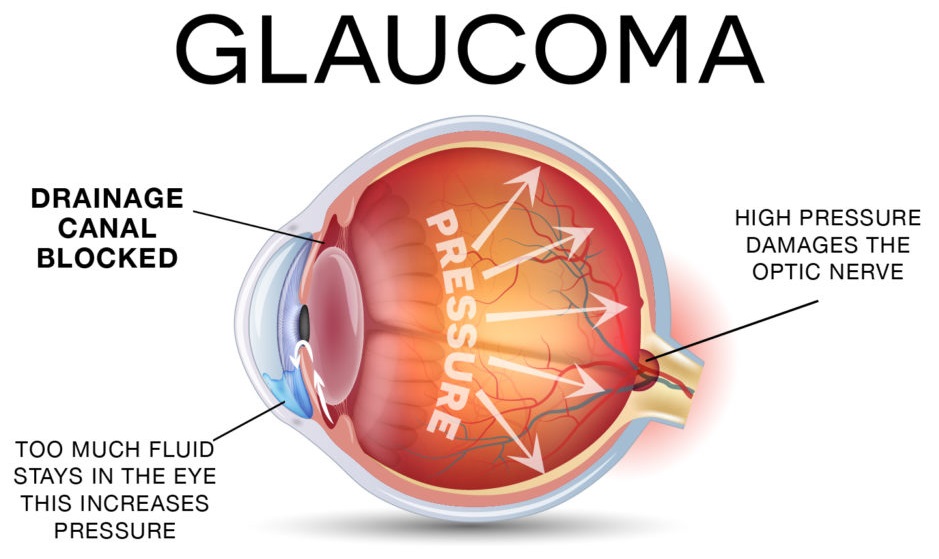Many of us don’t realize that our eyes have ‘pressure’ just like our blood. And when this pressure inside our eyes – known as intraocular pressure (IOP) – increases to dangerous levels, it can damage our optic nerve. This can result in decreased peripheral vision and eventually, blindness.

Glaucoma is a disease that can cause significant damage to your optic nerve. It happens when a fluid in your eye, called aqueous humor, doesn’t drain properly. This buildup of liquid increases the pressure in your eye, harming your optic nerve.
Glaucoma typically affects both eyes, but it doesn’t always progress at the same pace. One of your eyes might experience more pressure and damage than the other.
If left untreated, glaucoma can lead to progressive vision loss and blindness.
What are the different types of glaucoma?
There are two common types of glaucoma:
Open-angle glaucoma
Open-angle is the most common type of glaucoma. It comes on very gradually and doesn’t cause any noticeable pain or changes in your vision at first.
You begin to notice patchy blind spots in your peripheral vision as open-angle glaucoma progresses, but most people don’t become aware of the changes until their eye experiences significant damage.
Acute angle-closure glaucoma
Acute angle-closure glaucoma comes on in a sudden and acute attack. It typically happens if your iris is too close to your cornea, leaving your eye with less room than it needs to drain fluid properly. An attack can produce the following symptoms.
- Intense headache
- Pain in your eyes or forehead
- Eye redness
- Seeing halos or rainbows
- Sudden blurry vision
- Vomiting or nausea
Acute angle-closure glaucoma is an eye emergency. If you’re experiencing any of these symptoms, call or visit Bansal Eye Hospital, Jagadhri immediately for urgent care.
How do I know if I have glaucoma?
Glaucoma symptoms aren’t particularly noticeable at first. It eventually causes tunnel vision and patchy blind spots in your peripheral vision, but by the time you notice these changes in your vision, the disease has already done permanent damage to your optic nerve.
Because of glaucoma’s penchant for developing silently, it’s incredibly important to screen for it with regular eye exams. You should have a glaucoma screening every two years as part of your regular eye exam starting at age 65, or age 40 if you have diabetes, high blood pressure, or a history of the disease in your family.
How is glaucoma treated?
While treatment can’t reverse the damage caused by glaucoma, it can help prevent further damage.
An effective treatment is the prescription of special eye drops that can help relieve the pressure in your eye by decreasing your fluid production or helping the fluid drain.
Don’t wait any longer to treat your glaucoma or receive testing.
Schedule a visit at Bansal Eye Hospital, Jagadhri today by calling the office or booking an appointment online.
